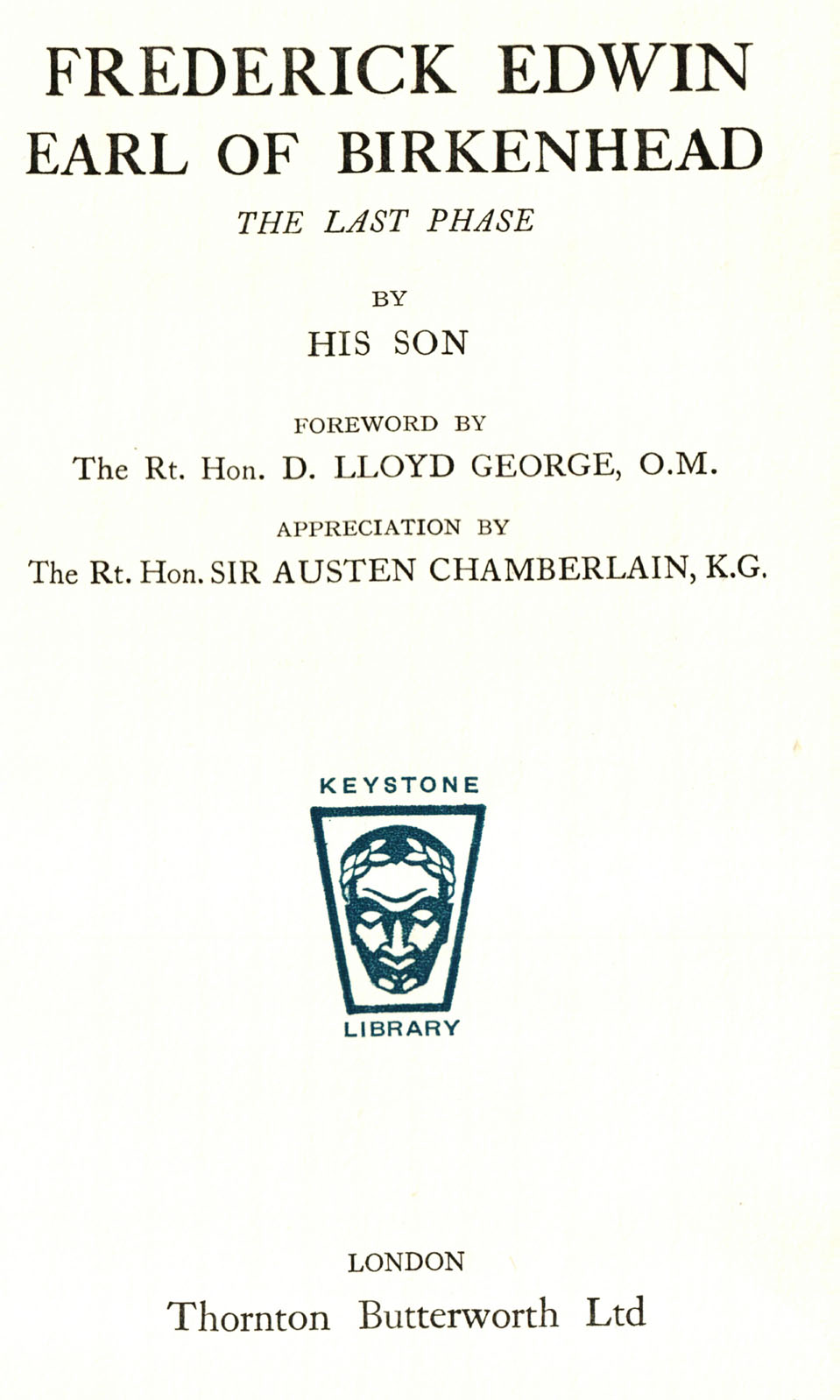
Out of Print
About The 1st Earl of Birkenhead
F.E.’s life was shamelessly, successfully and simultaneously devoted to self-advancement, self-advertisement, self-indulgence and self-destruction, and he achieved more distinction in each of these fields than most men achieve in any.
Driven by remorseless ambition, and aided by a first-rate brain of quicksilver speed, he amassed a remarkable tally of gongs, baubles and glittering prizes, at Oxford, in the law, and in politics. Endowed with a gigantic ego and towering self-confidence, he was the supreme right-wing demagogue between Lord Randolph Churchill and Mosley, with mesmeric oratorical gifts of lightning wit, stinging retort and poisonous vituperation.
And he was as reckless as he was rude: his magnificent carelessness, shameless hedonism and limitless extravagance betokened an inexhaustible appetite for life and pleasure; he squandered several fortunes on houses and horses, cars and cards, boats and brandy; he excelled at rugby, riding, golf and tennis; he burned all his candles at both ends; and he drank and spent as if there was no tomorrow. His consumption was conspicuous in every sense, and in the end he died of drink and left only debts.
David Cannadine